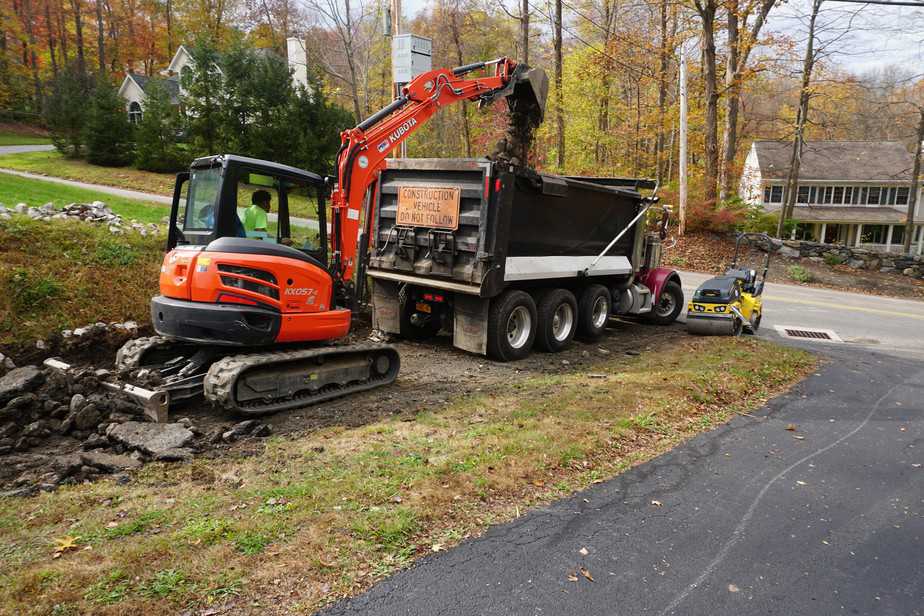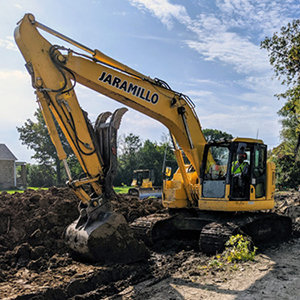Comprehensive Excavation Techniques: Grasping the Principles for Success
In the realm of construction and civil engineering, the value of effective excavation methods can not be overemphasized. The cautious preparation, accurate implementation, and thorough attention to information needed in excavation jobs require a comprehensive approach that includes numerous basic aspects. From initial dirt analysis to the application of precaution and regular progression tracking, grasping these core aspects is crucial for accomplishing success in any excavation venture. Nevertheless, truth mastery lies not simply in comprehending these principles yet in seamlessly incorporating them to browse the intricacies of excavation jobs with finesse.
Recognizing Excavation Task Preparation

Successful excavation tasks are improved the foundation of comprehensive and meticulous preparation. The initial stage of any type of excavation job is the preparation stage, where critical decisions are made that can substantially impact the end result of the task. Throughout this stage, it is vital to collect all relevant details concerning the website, including topographical surveys, dirt composition, and any kind of prospective hazards that may exist. Understanding the project timeline, budget plan, and scope restrictions is crucial for producing a detailed excavation plan that guarantees the project's success.
One secret facet of excavation project planning is the advancement of a comprehensive timeline that outlines the sequence of target dates, turning points, and tasks. This timeline functions as a roadmap for the project team, allowing them to track development and make needed changes to make certain the job stays on routine. Additionally, a distinct budget plan that makes up all costs, consisting of tools leasing, labor expenses, and products, is necessary for preventing cost overruns and hold-ups. By very carefully thinking about all these factors throughout the planning phase, excavation projects can be executed efficiently and efficiently, resulting in effective end results.
Soil Analysis and Site Examination
Carrying out extensive dirt analysis and site evaluation is a crucial action in the prep work phase of any type of excavation project. Dirt evaluation includes determining the make-up, structure, and buildings of the soil at the excavation website. This details is critical for recognizing the dirt's bearing ability, moisture material, and possibility for erosion, which are crucial aspects in establishing the excavation techniques and devices required for the task.
Site evaluation surpasses soil analysis and incorporates a broader analysis of the total website problems. This assessment includes recognizing any type of prospective hazards, such as below ground utilities, ecological worries, or unpredictable surface, that can influence the excavation procedure. By extensively reviewing the site, job managers can establish effective excavation techniques that focus on security, performance, and environmental security.
Utilizing advanced innovations like ground-penetrating radar, soil tasting, and drone studies can boost the precision and performance of soil evaluation and site examination. Spending time and resources in these preliminary actions can ultimately conserve time and prevent costly delays or complications during the excavation procedure.
Devices Selection and Application
Efficient excavation tasks rely heavily on calculated equipment selection and usage to make certain ideal performance and performance. Selecting the best tools for the work is important in optimizing effectiveness and decreasing downtime. Aspects such as the kind of dirt, deepness of excavation, and project extent play a significant duty in figuring out the most suitable devices for the job at hand.

In enhancement to picking the ideal devices, appropriate application is essential to project success. Operators needs to be trained to deal with the devices safely and successfully - septic ohio. Routine upkeep checks and timely repairs assist stop breakdowns and guarantee constant efficiency throughout the job
Precaution and Laws Compliance
In the realm of excavation jobs, prioritizing security measures and compliance with guidelines is vital to making sure a legitimately audio and secure operational environment. Safety measures include a variety of techniques, consisting of carrying out complete website analyses, executing proper signage and obstacles, and giving adequate safety and security training for all personnel included in the excavation procedure. Adherence to laws, such as OSHA requirements in the USA, makes sure that the excavation task fulfills the needed standards to protect workers, spectators, and the surrounding atmosphere.

Monitoring Development and Adjusting Techniques
Exactly how can predict managers successfully track the advancement of excavation jobs and adapt their link techniques as necessary to optimize outcomes? Surveillance progress is necessary for ensuring that excavation projects remain on track and fulfill target dates.

Verdict
Finally, understanding the principles of comprehensive excavation approaches is vital for the success of any kind of project. By recognizing job preparation, evaluating dirt and website conditions, choosing appropriate devices, following safety and security guidelines, and checking development, job managers can make certain a smooth and efficient excavation procedure. Implementing these techniques will certainly bring about effective outcomes and reduce possible threats or troubles during the excavation job.
The initial stage of any type of excavation project is the preparation stage, where important choices are made that can substantially impact the result of the project. Recognizing the project timeline, spending plan, and scope restrictions is crucial for creating a thorough excavation strategy that ensures the project's success.
Just how can forecast supervisors effectively track the innovation of excavation jobs and adapt their strategies accordingly to enhance outcomes? By carefully checking progress and being eager to adjust techniques, task supervisors can improve the total success of excavation jobs.
By comprehending project preparation, examining soil and site great post to read problems, picking suitable equipment, conforming with safety and security regulations, and monitoring development, job managers can ensure a smooth and reliable excavation process.